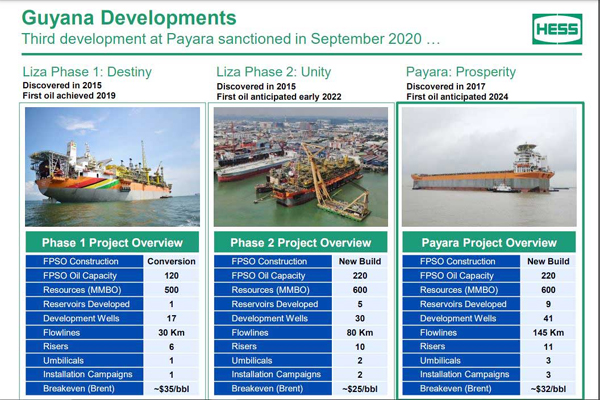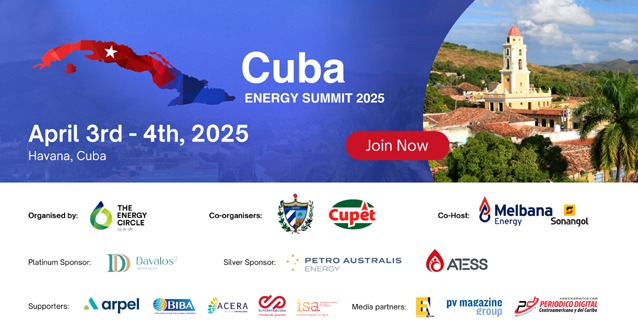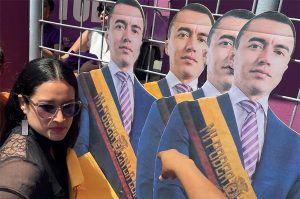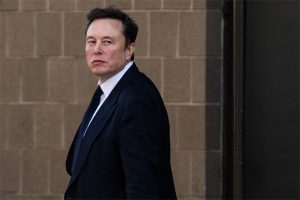…but deny Guyana fundamental right to full coverage insurance

By Kaieteur News
GEORGETOWN
EnergiesNet.com 02 09 2022
The Liza Unity, Guyana’s second floating, production, storage and offloading (FPSO) vessel, comes into operation no later than next month. Once this occurs, it will complement activities at the Liza Destiny FPSO, taking production to 340,000 barrels of oil.
Importantly, this new development in the Stabroek Block will also allow the Exxon Mobil-led consortium to collect eighty-one (81) lifts at approximately 1 million barrels of oil per lift for this year. Calculated at an average price of US$70 Brent, the Stabroek Block partners inclusive of Exxon Mobil Corporation, Hess Corporation and CNOOC Petroleum, will walk away with no less than US$5.7B in profits.
Despite being able to make multibillion dollar profits for its shareholders via its prime Guyana asset, Exxon and its partners continue to deny the country full coverage insurance which is a fundamental right so that nations can cover any costs associated with an oil spill or other type of disaster.
Since 2015, Kaieteur News has been at the forefront of reporting that ExxonMobil Corporation, the parent company of Esso Exploration and Production Guyana Limited, has steered clear of being tied to full coverage insurance for its Stabroek Block projects. Instead, it has placed only its subsidiary (EEPGL—a company that holds very little assets) on the hook if such an eventuality occurs offshore. This is the state of affairs with its Liza Phase One, Liza Phase Two and Payara Projects. It seems to be eager to continue this trend for the fourth project called Yellowtail.
WHAT OTHERS ACCEPT
When one examines what other administrations across the world demand from ExxonMobil in the area of insurance, there is a noticeable difference when compared to Guyana.
In Liberia for example, ExxonMobil is not allowed to provide the authorities there with insurance coverage from its subsidiaries. To prevent Exxon from using this loophole, the authorities there have demanded that the company provides insurance coverage without limitation. Such insurance can therefore, only be provided by the parent company and not its subsidiary, which has little to no revenue.
The clause in one of the Production Sharing Agreements, which Exxon is tied to in Liberia says, “The Contractor shall take out and cause to be taken out by its contractors and subcontractors, in respect of the Petroleum Operations, all insurances of the type and for such amounts customarily carried in accordance with Good International Petroleum Industry Practice, including without limitation, third party liability insurance and insurances to cover damage to property, facilities, equipment and materials, without prejudice to such insurances, which would be required under Law.”
Importantly, Liberia makes it categorically clear that evidence of full coverage insurance by Exxon, its partners and subcontractors, have to be provided “before Petroleum Operations begin and thereafter at least annually.”
Closer to home, Suriname has been very resolute in its position to not accept anything but full coverage insurance from the parent companies operating in their basin.
WORLD BANK URGES
In previously published articles, Kaieteur News placed the spotlight on the devastating economic, social and environmental impacts oil spills have had on many parts of the world. In some cases, the effects are irreversible. Considering this, international bodies have stressed on the need for countries to ensure the parent companies for subsidiaries provide “comprehensive insurance” to at least cover the costs associated with dealing with such events.
One of the many advocates on this matter is the World Bank, one of Guyana’s development partners. According to the organisation, it is expected that oil companies take out insurance for their operations in any country.
However, the World Bank warned that operators have often sought insurance via their subsidiaries, which only covers certain activities. These may include third party legal liability and control of wells, re-drill, and cleanup of sudden and accidental pollution from a well out of control. It cautioned that industry regulators must ensure that an operator’s insurance covers every possible eventuality since “for some operators, their insurance excludes blowout or subsurface pollution or below-wellhead risk.”
The World Bank highlighted that there is insurance that covers a blowout from an oil project. It is referred to as Operators’ Extra Expense (OEE) insurance. The World Bank said that emerging oil producers such as Guyana would want to ensure that this is in place and had from parent companies especially when one considers how other nations suffered in the absence of this.
In this regard, the financial institution cited the case of the major oil spill, which occurred in 2010 in the Gulf of Mexico. The spill led to a loss of 53,000 barrels of oil a day for many weeks. It covered 6,500 square kilometers and involved five million barrels of oil. The source, the Deepwater Horizon field, was operated by British Petroleum under a joint operating agreement with Anadarko Petroleum and Mitsui Oil Corporation. The financial consequence of the spill was more than US$8 billion. Unfortunately, the insurance of the oil companies did not cover pollution that occurs following a blowout. It eventually led to a whirlwind of court battles and legal maneuverings to get the oil companies to pay up. Payments were stretched out for years, and the environment continues to suffer from the effect of that spill to this day.
In spite of the foregoing warnings, among others, Guyana’s authorities continue to pussyfoot with demanding full coverage insurance to protect the environment and its people.
kaieteurnewsonline 02 09 2022












